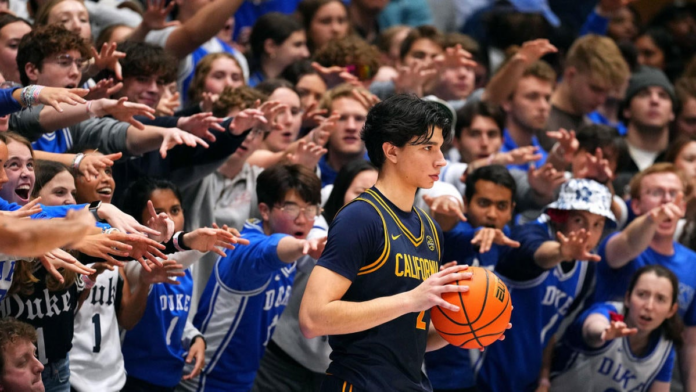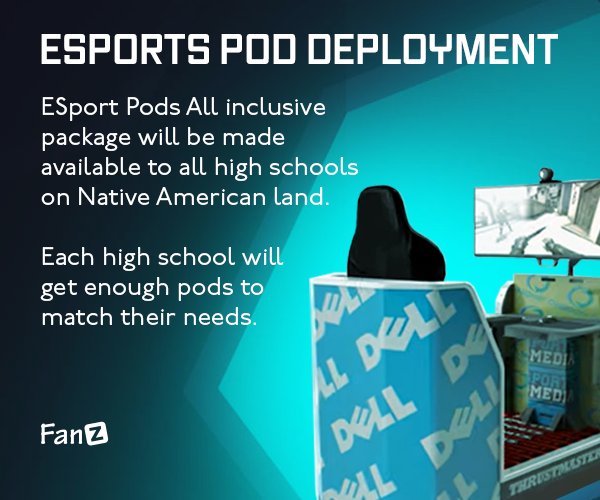Say the word “free,” and it’s enough to make even the most experienced travelers lose their marbles.
For example, if I offer you 100,000 free bonus miles for signing up for my precious-metal credit card, you might be tempted, even if it’s a toxic financial instrument with a ridiculously high annual percentage rate that will take a wrecking ball to your finances if you don’t pay it off every month.
It’s true. Travelers can’t seem to control themselves when they hear the word “free.”
“There’s a thrill we get from feeling like we’re getting more than what we paid for,” says Ehab Youssef, a clinical psychologist and a mental health researcher. “I’ve had clients share stories of how excited they feel about snagging a complimentary breakfast or scoring a free upgrade at a hotel. It’s not just about the financial savings; it’s the emotional satisfaction that comes with it.”
News Roundups Catch up on the day’s news you need to know. SIGN UP Or with: Google Facebook By signing up you agree to our Terms of Service and Privacy Policy
But make no mistake: “Free” can be one of the world’s most dangerous travel scams.
Travelers are more addicted to free stuff than ever, but there’s almost always a catch. They have a hard time distinguishing from something that’s actually free, as opposed to a clever marketing lie, and they don’t have a clue about making a smarter purchasing decision.
Advertisement
Our addiction to “free” stuff has never been worse
The recent holiday shopping season was a frenzy for people pursuing free stuff. Spending on gift cards, a preferred tool for people who are trying to game the system and get more freebies, was predicted to rise by almost 10 percent from last year . The apparent demise of the Consumer Financial Protection Bureau last recently, an agency that had promised to protect consumers from false promises made by credit card companies, didn’t exactly help.
Americans owe a record $1.17 trillion in credit card debt . Credit card companies lure us with points or miles when we pay with plastic. The promise of “free” miles is piling on that heavy burden. Never mind that we have to pay off that debt at some point, which will all but certainly negate the value of those “free” miles.
Advertisement
“Getting something for free ties us to a brand,” says Andrew Jernigan, CEO of Insured Nomads . “Whether rationally — or irrationally.”
Advertisement
Why do we want free things?
There’s a mountain of research that explains why we can’t help ourselves. Jeff Galak, an associate professor of marketing at Carnegie Mellon University, says the phenomenon is called the “zero price effect.”
“When people see ‘free,’ they process the value of whatever the thing is differently than when they see any price associated with the same item,” he says.
Advertisement
In other words, when you see the word “free,” you tend to overestimate its value and underestimate the potential downsides. You’re less likely to consider whether you really need the item or whether it’s worth the effort to obtain it. You just want it because it’s free.
And that can lead you to make irrational decisions, like signing up for a credit card you don’t need just to get bonus miles or staying at a hotel that’s farther away from your destination just because it offers free breakfast, or because you get bonus points.
Research on this topic goes back decades, but Dan Ariely’s 2008 book Predictably Irrational: The Hidden Forces That Shape Our Decisions brought it into clear focus for travel marketers. Ariely ran several experiments that showed that when faced with multiple choices, people usually chose the free option.
And loyalty marketers saw dollar signs. Just like social media companies fine-tune their algorithm to maximize your engagement, so, too, have airlines, hotels and credit card companies — especially credit card companies — honed their advertising message to exploit your human weakness for a bargain.
Advertisement
What kinds of “free” are there?
There are actually three different types of free, according to Chip Bell, a customer loyalty consultant based in Greensboro, Ga. That can add to the confusion.
Free with purchase. You have to buy something to get this “free” thing. Offers where your kids stay free or eat free are conditioned on you paying for your hotel room or your meal. Technically, there’s nothing free about this type of offer. “It’s meant to build affinity with a customer,” Bell says — but with only a paying customer.
Free with strings. That’s when you have to do something besides spend money to get the free item or service. For example, you have to sign up for a credit card to get bonus miles. Or you have to become a frequent flyer to get a “free” checked bag. “It’s clearly a game,” Bell says, because strings are attached. “To me, that’s a type of ‘free’ that’s unethical.”
Advertisement
Actually free. It’s something you get with absolutely no preconditions. The blueberry muffin samples at the airport Starbucks are actually free, because you can walk into the store, take the baked good, and leave without buying anything. But this is very rare.
Bottom line: There should only be one type of free, the actual dictionary definition of free, which is that it costs you nothing.
How to separate a scam from a deal
Most of the “free” stuff you’re offered as a traveler is of marginal value, if not a scam. So how can you tell if a free travel perk is a good deal or just a marketing gimmick? Here are a few tips:
Advertisement
Review the fine print carefully. Look for any restrictions or limitations on the offer. For example, a free night at a hotel might only be valid during certain times of the year or require a minimum stay. The free miles you get with your card may be contingent on a big purchase, which may land you in a lot of debt or compel you to spend money on flights you don’t need.
Consider the total cost of the trip. Don’t just focus on the freebie. Factor in all the other costs, such as airfare, accommodation and activities. A “free” breakfast might not be such a good deal if the hotel room rate is inflated to cover the cost. (Note that in many countries, hotels include breakfast in the price of their room, and they usually don’t insult your intelligence by calling it “free.”)
Remember: If it’s too good to be true, it probably is. Be careful of any offer that seems too good to pass up. Often, these fraudulent offers are combined with pressure to act now. These “free” deals may be more than shady offers that will leave you with debt —- they might be true scams.
The worst thing about these “free” offers is that they distract you from what really matters. Research from Travelport, a global technology company behind travel bookings, suggests that while breakfast-included and courtesy shuttles to the airport are important, they are not the most important thing.
Advertisement
After price, the most important things are a generous luggage allowance, a reasonable ticket-change policy and the ability to select a seat — all things that customer-friendly airlines do without forcing you to join their loyalty programs or signing up for a credit card.
The “free” trap is a cleverly crafted illusion, designed to make you believe you’re getting something for nothing. But the truth is, you’ll pay for it in other ways, whether it’s through inflated prices, hidden fees or the opportunity cost of choosing a subpar option. By seeing through the illusion, you can make rational decisions — and avoid getting taken for a ride.
Christopher Elliott is an author, consumer advocate, and journalist. He founded Elliott Advocacy, a nonprofit organization that helps solve consumer problems. He publishes Elliott Confidential , a travel newsletter, and the Elliott Report , a news site about customer service. If you need help with a consumer problem, you can reach him here or email him at chris@elliott.org.
—
Delayed flights, NFL advice and epic rants: How traveling in expanded conferences is impacting teams
Recent Comments
on CONCEPT ART: New Details Revealed for Disney Cruise Line Lookout Cay at Lighthouse Point Destination
on “Completely Knocked Me Out”: Rob Lowe Recalls Boxing Match With Tom Cruise On 1983 Brat Pack Classic
on CBS Sports announces Matt Ryan will join NFL studio show. Longtime analysts Simms and Esiason depart
on Carlos Sainz’s Soccer Fanboy Emerges as Spaniard Shares Defining Moment With This Real Madrid Legend
on Biden: ‘At this point I’m not’ planning to visit East Palestine, Ohio, after toxic train derailment
on ‘Best Intention’: Chris Kirk Has Absolute Trust in Jay Monahan and PGA Tour’s Widely Debated Model
on Ahead of big sports weekend, dispute with Disney leaves millions of cable subscribers in the dark
on A heavy wave of Russian missile attacks pounds areas across Ukraine, killing at least 4 civilians
on 2024 Super Bowl: CBS Sports Network and CBS Sports HQ to combine for 115 hours of weeklong coverage
on 2023 NFL All-Rookie Team: CBS Sports draft expert, former GM unveil league’s best first-year players
on Army vs. Coastal Carolina live stream, how to watch online, CBS Sports Network channel finder, odds
on AL Rookie of the Year Julio Rodriguez Spreads Joy and Sportsmanship to the Youth of Loma de Cabrera
on After UFC Fallout, Conor McGregor Offers a Valuable Piece of Advice to Free Agent Francis Ngannou
on Dubai International Airport sees 41.6 million passengers in first half of year, more than in 2019
on Devout athletes find strength in their faith. But practicing it and elite sports can pose hurdles
on Despite strong Lunar New Year holiday data, consumer spending in China isn’t roaring back just yet
on Dave Portnoy: Taylor Swift’s security should ‘drag Kim Kardashian to jail’ if she attends Eras Tour
on CONCEPT ART: New Details Revealed for Disney Cruise Line Lookout Cay at Lighthouse Point Destination
on “Completely Knocked Me Out”: Rob Lowe Recalls Boxing Match With Tom Cruise On 1983 Brat Pack Classic
on CBS Sports, Serie A announce new TV rights deal; Paramount+ to air over 400 Italian soccer matches
on Cam Newton’s Violent Public Incident Draws Hilarious Reaction From 3x All-Star: “Where Do I Sign Up
on Boston College vs. Army live stream, how to watch online, CBS Sports Network channel finder, odds
on Angel Reese Launches Foundation Dedicated To Empowering Women Through Sports & Financial Literacy
on A weaker dollar, skyrocketing prices and ‘record’ visitor numbers: Good luck in Europe this summer




